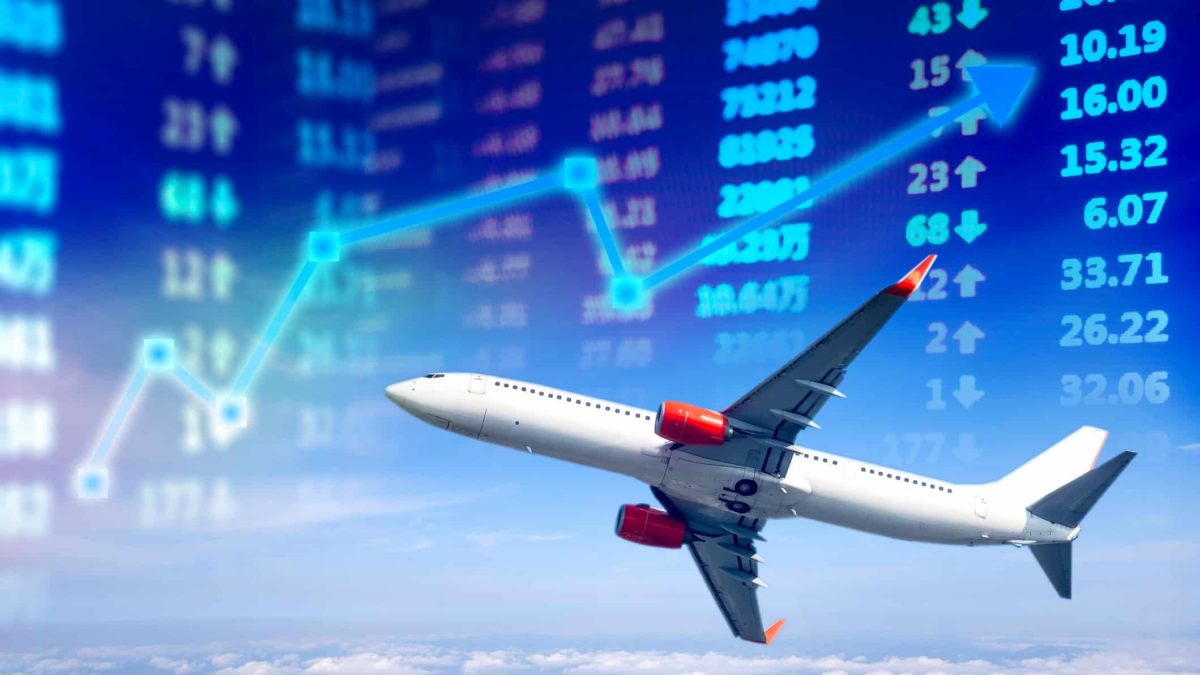The Qantas Airways Limited (ASX: QAN) share price has fallen nearly 38% since the start of the year. Unsurprisingly, this is predominantly due to the COVID-19 pandemic and the resulting restrictions on air travel.
However, Qantas shares have soared 117% from their March lows. This performance exceeds the recovery of the S&P/ASX200 index (ASX:XJO) which has rebounded around 35% since its lowest point.
Let's first look at two reasons the Qantas share price may still offer compelling value at today's price of $4.42. Then, we'll consider what Qantas CEO, Alan Joyce, had to say about the company's outlook.
Reason 1: strong brand name
According to Airline Ratings, Qantas has been named the safest airline in the world for 2020. I think it's fair to say that when travelling by plane, passengers value their safety above everything else. A reputation for absolute safety could definitely be seen as a 'moat' or competitive advantage for Qantas. As restrictions continue to ease and plane travel resumes, it's possible passengers will be prepared to pay a premium for safety. This could be good news for the Qantas share price.
In an ASX media release on 5 May, Qantas reported that is Frequent Flyer program has continued to perform well during the pandemic. The program has enabled some revenues to keep flowing from partnerships with companies such as Woolworths Group Ltd (ASX: WOW).
Also, a survey of Qantas Frequent Flyer members showed 85% were planning to fly as soon as conditions returned to normal. This is another positive sign for the Qantas share price.
Reason 2: strong financial position
Qantas has secured a further $550 million in debt funding to help it survive the coronavirus crisis. This was facilitated by borrowing against three of its wholly-owned Boeing 787-9 aircraft. Likewise, $1.05 billion was raised in March against seven 787-9 aircraft. Pleasingly, the group has no significant debt maturities until June 2021.
In addition, Qantas has sufficient liquidity to continue operating under current conditions until at least December 2021.
As of 4 May 2020, Qantas had short-term liquidity of $3.5 billion which includes a $1 billion undrawn facility. The group expects a cash burn rate of $40 million per week by the end of this month.
Fuel is a significant expense for airlines and the strategy Qantas takes to keep its fuel costs under control is hedging. Essentially, hedging helps minimise the risk and uncertainty created by oil price fluctuations.
Unfortunately, as demand for travel significantly declined, the group experienced hedging losses due to the drop in oil prices. These losses, together with the impact of foreign exchange, will result in a $145 million cash outflow by the end of September.
Nevertheless, the Aussie airline stated that there will be no risk of further hedging losses. This should assist the company to retain its strong cash position and help boost the chances of continued growth in the Qantas share price.
CEO comments
On a further positive note, Qantas Group CEO Alan Joyce said in the 5 May media release:
"Our cash balance shows that we're in a very strong position, which under the circumstances we absolutely have to be. We don't know how long domestic and international travel restrictions will last or what demand will look like as they're gradually lifted.
Our ability to withstand this crisis and its aftermath is only possible because we're tapping into a balance sheet that has taken years to build".
Foolish takeaway
Qantas has a reputation of being the safest airline in the world as reinforced by its rating for 2020. Furthermore, the company's financial position is strong considering the current circumstances. As such, I feel the current Qantas share price may present a buying opportunity. Whilst uncertainty still remains surrounding demand once restrictions ease, an indication that 85% of Qantas Frequent Flyer members will fly once they are permitted to is positive in my view.









